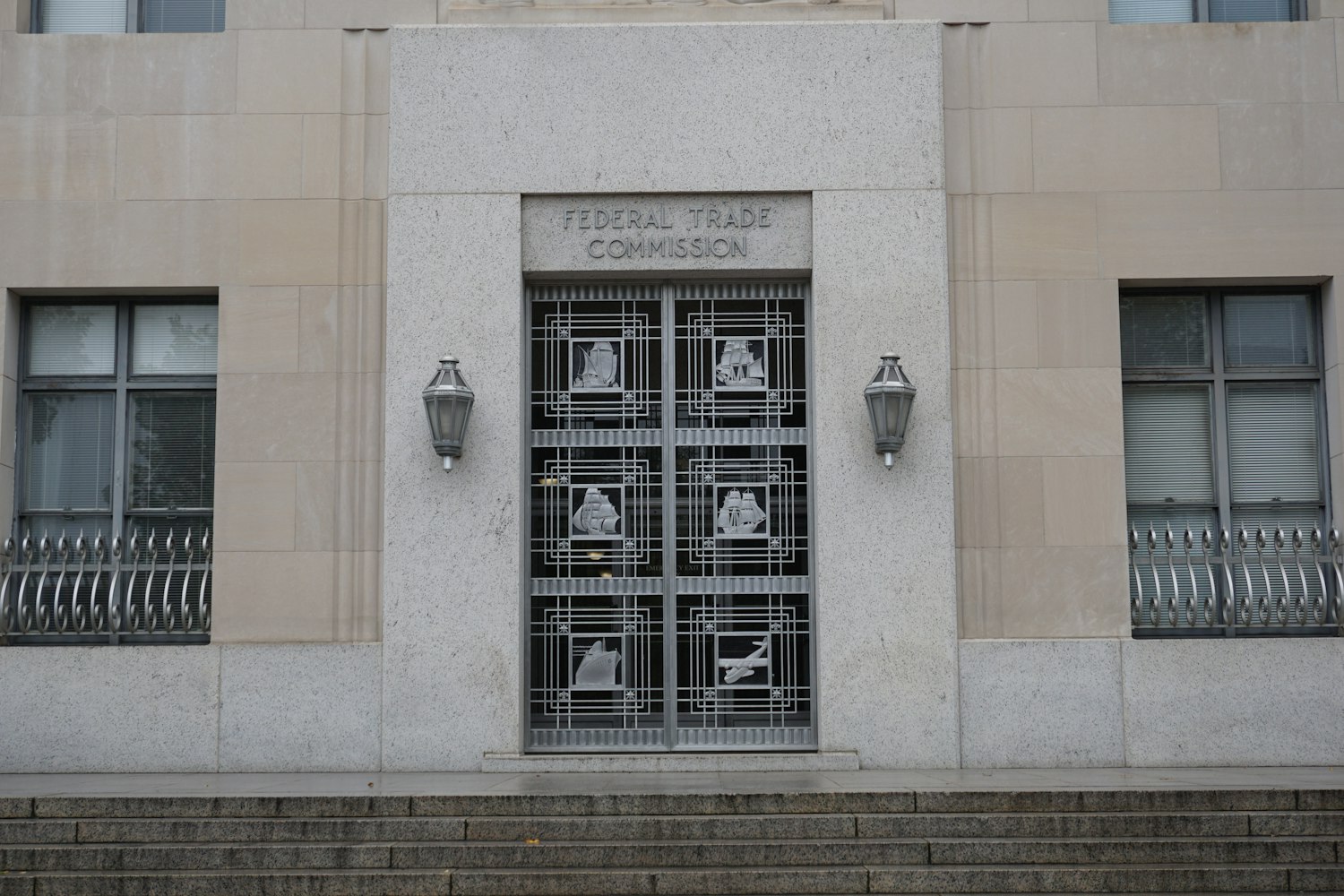
Publishings Digital Youth
Program Areas
-
Blog
CDD Urges the House to Promptly Markup HR 7890 - the Children and Teens' Online Privacy Protection Act (COPPA 2.0), HR 7890
COPPA 2.0 provides a comprehensive approach to safeguarding children’s and teen’s privacy via data minimization and a prohibition on targeted advertising – it’s not “just” about “notice and consent”
COPPA 2.0 provides a comprehensive approach to safeguarding children’s and teen’s privacy via data minimization and a prohibition on targeted advertising – it’s not “just” about “notice and consent”We commend Rep. Walberg (R-Mich.) and Rep. Castor (D-FL) for introducing the House COPPA 2.0 companion bill. The bill enjoys strong bipartisan support in the U.S. Senate. We urge the House to promptly markup HR 7890 and pass it into law. Any delay in bringing HR 7890 to a vote would expose children, adolescents, and their families to greater harm.Learn more about the Children and Teens’ Online Privacy Protection Act here: Background:The United States is currently facing a commercial surveillance crisis. Digital giants invade our private lives, spy on our families, deploy manipulative and unfair data-driven marketing practices, and exploit our most personal information for profit. These reckless practices are leading to unacceptable invasions of privacy, discrimination, and public health harms.In particular, the United States faces a youth mental health crisis fueled, in part, by Big Tech. According to the American Academy of Pediatrics, children’s mental health has reached a national emergency status. The Center for Disease Control found that in 2021, one in three high school girls contemplated suicide, one in ten high school girls attempted suicide, and among LGBTQ+ youth, more than one in five attempted suicide. As the Surgeon General concluded in a report last year, “there are ample indicators that social media can also have a profound risk of harm to the mental health and well-being of children and adolescents.”Platforms’ data practices and their prioritization of profit over the well-being of America’s youth significantly contribute to the crisis. The lack of privacy protections for children and teens has led to a decline in young people’s well-being. Platforms rely on vast amounts of data to create detailed profiles of young individuals to target them with tailored ads. To achieve this, addictive design features are employed, keeping young users online for longer periods of time and exacerbating the youth mental health crisis. The formula is simple: more addiction equals more data and more targeted ads which translates into greater profits for Big Tech. In fact, according to a recent Harvard study, in 2022, the major Big Tech platforms earned nearly $11 billion in ad revenue from U.S. users under age 17.The Children and Teens’ Online Privacy Protection Act (COPPA 2.0) modernizes and strengthens the only online privacy law for children, the Children’s Online Privacy Protection Act (COPPA). COPPA was passed over 25 years ago and is crucially in need of an update, including the extension of safeguards to teens. Passed by the Senate out of Committee, Reps. Tim Walberg (R-MI) and Kathy Castor (D-FL) introduced COPPA 2.0 in the House in April. It’s time now for the House to act. The Children and Teens’ Online Privacy Protection Act would:- Build on COPPA and extend privacy safeguards to users who are 13 to 16 years of age;- Require strong data minimization safeguards prohibiting the excessive collection, use, and sharing of children’s and teens’ data; COPPA 2.0 would:Prohibit the collection, use or disclosure or maintenance of personal information for purposes of targeted advertising;Prohibit the collection of personal information except when the collection is consistent with the context and necessary to fulfill a transaction or service or provide a product or service requested;Prohibit the retention of personal information for longer than is reasonably necessary to fulfill a transaction or provide a service;Prohibit conditioning a child’s or teen’s participation on the child’s or teen’s disclosing more personal information than is reasonably necessary.Except for certain internal permissible operations purposes of the operator, all other data collection or disclosures require parental or teen consent.- Ban targeted advertising to children and teens;- Provide for parental or teen controls;It would provide for the right to correct or delete personal information collected from a child or teen or content or information submitted by a child or teen to a website – when technologically feasible.- Revise COPPA’s “actual knowledge” standard to close the loophole that allows covered platforms to ignore kids and teens on their site. But what about….?…Notice and Consent, doesn’t COPPA 2.0 rely on the so-called “notice and consent” approach and isn’t the consensus that this is an ineffective way to protect privacy online?No, COPPA 2.0 does not rely on “notice and consent”. It would provide a comprehensive approach to safeguarding children’s and teen’s privacy via data minimization. It appropriately restricts companies’ ability to collect, use, and share personal information of children and teens by default. The consent mechanism is just one additional safeguard. 1. By default COPPA 2.0 would prohibitthe collection, use or disclosure or maintenance of personal information for purposes of targeted advertising to children and teens - this is a flat out ban, consent is not required.the collection of personal information except when the collection is consistent with the context of the relationship and necessary to fulfill a transaction or service or provide a product or service requested of the relationship of the child/teen with the operator.the retention of personal information for longer than is reasonably necessary to fulfill a transaction or provide a service. 2. By extending COPPA protections to teens, COPPA 2.0 would further limit data collection from children and teens as COPPA 2.0 would prohibitconditioning a child’s or teen’s participation in a game, the offering of a prize, or another activity on the child’s or teen’s disclosing more personal information than is reasonably necessary to participate in such activity. 3. Any other personal information that companies would want to collect, use, or disclose requires parental consent or the consent of a teen, except for certain internal permissible operations purposes of the operator. COPPA 2.0's data minimization provisions prevent the collection, use, disclosure, and retention of excessive data from the start. By not collecting or retaining unnecessary data, harmful, manipulative, and exploitative business practices will be prevented. The consent provision is important but plays a relatively small role in the privacy safeguards of COPPA 2.0. But what about….?…targeted advertising, don’t we need a clear ban of targeted advertising to children and teens?Yes, and COPPA 2.0 bans targeted advertising while allowing for contextual advertising.Under COPPA 2.0 it is unlawful for an operator "to collect, use, disclose to third parties, or maintain personal information of a child or teen for purposes of individual-specific advertising to children or teens (or to allow another person to collect, use, disclose, or maintain such information for such purpose).” But what about….?…the transfer of personal information to third parties?Yes, COPPA 2.0 requires verifiable consent by a parent or teen for the disclosure or transfer of personal information to a third party, except for certain internal permissible operations purposes of the operator. Verifiable consent must be obtained before collection, use, and disclosure of personal information via direct notice of the personal information collection, use, and disclosure practices of the operator. Any material changes from the original purposes also require verifiable consent.(Note that the existing COPPA rule requires that an operator gives a parent the option to consent to the collection and use of the child's personal information without consenting to the disclosure of his or her personal information to third parties under 312.5(a)(2). The FTC recently proposed to bolster this provision under the COPPA rule update.) -
Press Release
Children’s Advocates Urge the Federal Trade Commission to Enact 21st Century Privacy Protections for Children
More than ten years since last review, organizations urge the FTC to update the Children’s Online Privacy Protection Act (COPPA)
FOR IMMEDIATE RELEASEContact:David Monahan, Fairplay: david@fairplayforkids.org Jeff Chester, Center for Digital Democracy: jeff@democraticmedia.org Children’s Advocates Urge the Federal Trade Commission toEnact 21st Century Privacy Protections for Children More than ten years since last review, organizations urge the FTC to updatethe Children’s Online Privacy Protection Act (COPPA) WASHINGTON, DC — Tuesday, March 12, 2024 – A coalition of eleven leading health, privacy, consumer protection, and child rights groups has filed comments at the Federal Trade Commission (FTC) offering a digital roadmap for stronger safeguards while also supporting many of the agency’s key proposals for updating its regulations implementing the bipartisan Children’s Online Privacy Protection Act (COPPA). Comments submitted by Fairplay, the Center for Digital Democracy, the American Academy of Pediatrics, and other advocacy groups supported many of the changes the commission proposed in its Notice of Proposed Rulemaking issued in December 2023. The groups, however, told the FTC that a range of additional protections are required to address the “Big Data” and Artificial Intelligence (AI) driven commercial surveillance marketplace operating today, where children and their data are a highly prized and sought after target across online platforms and applications. “The ever-expanding system of commercial surveillance marketing online that continually tracks and targets children must be reined in now,” said Katharina Kopp, Deputy Director, Director of Policy, Center for Digital Democracy. “The FTC and children’s advocates have offered a digital roadmap to ensure that data gathered by children have the much-needed safeguards. With kids being a key and highly lucrative target desired by platforms, advertisers, and marketers, and with growing invasive tactics such as AI used to manipulate them, we call on the FTC to enact 21st-century rules that place the privacy and well-being of children first.” “In a world where streaming and gaming, AI-powered chatbots, and ed tech in classrooms are exploding, children's online privacy is as important as ever,” said Haley Hinkle, Policy Counsel, Fairplay. “Fairplay and its partners support the FTC's efforts to ensure the COPPA Rule meets kids' and families' needs, and we lay out the ways in which the Rule addresses current industry practices. COPPA is a critical tool for keeping Big Tech in check, and we urge the Commission to adopt the strongest possible Rule in order to protect children into the next decade of technological advancement.” While generally supporting the commission’s proposal that provides parents or caregivers greater control over a child’s data collection via their consent, the groups told the commission that a number of improvements and clarifications are required to ensure that privacy protections for a child’s data are effectively implemented. They include issues such as: ● The emerging risks posed to children by AI-powered chatbots and biometric data collection.● The need to apply COPPA’s data minimization requirements to data collection, use, and retention to reduce the amount of children’s data in the audience economy and to limit targeted marketing.● The applicability of the Rule’s provisions – including notice and the separate parental consent for collection and disclosure consent and data minimization requirements – to the vast networks of third parties that claim to share children’s data in privacy safe ways, including “clean rooms”, but still utilize young users’ personal information for marketing.● The threats posed to children by ed tech platforms and the necessity of strict limitations on any use authorized by schools.● The need for clear notice, security program, and privacy program requirements in order to effectively realize COPPA’s limitations on the collection, use, and sharing of personal information. The 11 organizations that signed on to the comments are: the Center for Digital Democracy (CDD); Fairplay; American Academy of Pediatrics; Berkeley Media Studies Group; Children and Screens: Institute of Digital Media and Child Development; Consumer Federation of America; Center for Humane Technology; Eating Disorders Coalition for Research, Policy, & Action; Issue One; Parents Television and Media Council; and U.S. PIRG. ### -
Press Release
Press Statement - CDD supports revisions to Kids Online Safety Act (KOSA) that now has majority of Senate backing
Washington, DC February 15, 2024For too long social media platforms have prioritized their financial interests over the well-being of young users. Meta, TikTok, YouTube, Snap and other companies should be held accountable for the safety of America's youth. They must be required to prevent harms to kids—such as eating disorders, violence, substance abuse, sexual exploitation, and the exploitation of their privacy. The Kids Online Safety Act (KOSA) would require platforms to implement the most protective privacy and safety settings by default. It would help prevent the countless tragic results experienced by too many children and their parents. We are in support of the updated language of the Kids Online Safety Act and urge Congress to pass the bill promptly. Katharina Kopp, Ph.D.Director of Policy, Center for Digital Democracy -
Press Release
Leading Advocates for Children Applaud FTC Update of COPPA Rule
Fairplay and the Center for Digital Democracy see a crucial step toward creating safer online experiences for kids
Contact:David Monahan, Fairplay, david@fairplayforkids.org Jeff Chester, CDD, jeff@democraticmedia.org Leading Advocates for Children Applaud FTC Update of COPPA RuleFairplay and the Center for Digital Democracy see a crucial step toward creating safer online experiences for kids WASHINGTON, DC — December 20, 2023—The Federal Trade Commission has proposed its first update of rules protecting children’s privacy in a decade. Under the bipartisan Children’s Online Privacy Protection Act of 1998 (COPPA), children under 13 currently have a set of core safeguards designed to control and limit how their data can be gathered and used. The COPPA Rules were last revised in 2012, and today’s proposed changes offer new protections to ensure young people can go online without losing control over their personal information. These new rules would help create a safer, more secure, and healthier online environment for them and their families—precisely at a time when they face growing threats to their wellbeing and safety. The provisions offered today are especially needed to address the emerging methods used by platforms and other digital marketers who target children to collect their data, including through the growing use of AI and other techniques. Haley Hinkle, Policy Counsel, Fairplay:“The FTC’s recent COPPA enforcement actions against Epic Games, Amazon, Microsoft, and Meta demonstrated that Big Tech does not have carte blanche with kids’ data. With this critical rule update, the FTC has further delineated what companies must do to minimize data collection and retention and ensure they are not profiting off of children’s information at the expense of their privacy and wellbeing. Anyone who believes that children deserve to explore and play online without being tracked and manipulated should support this update.” Katharina Kopp, Ph.D., Director of Policy, Center for Digital Democracy:“Children face growing threats as platforms, streaming and gaming companies, and other marketers pursue them for their data, attention, and profits. Today’s FTC’s proposed COPPA rule update provides urgently needed online safeguards to help stem the tidal wave of personal information gathered on kids. The commission’s plan will limit data uses involving children and help prevent companies from exploiting their information. These rules will also protect young people from being targeted through the increasing use of AI, which now further fuels data collection efforts. Young people 12 and under deserve a digital environment that is designed to be safer for them and that fosters their health and well-being. With this proposal, we should soon see less online manipulation, purposeful addictive design, and fewer discriminatory marketing practices.” ### -
Press Release
BREAKING: Advocates Decry Meta’s Attempt to Shut Down the FTC
In response to an order that would prohibit Meta from monetizing minors’ data, the social media company has filed a suit claiming the agency’s structure is unconstitutional.
Contact: David Monahan, Fairplay, david@fairplayforkids.orgContact: Jeff Chester, CDD, jeff@democraticmedia.org BREAKING: Advocates Decry Meta’s Attempt to Shut Down the FTCIn response to an order that would prohibit Meta from monetizing minors’ data, the social media company has filed a suit claiming the agency’s structure is unconstitutional. WASHINGTON, DC – THURSDAY, NOVEMBER 30, 2023 – Advocates for children and privacy condemned a lawsuit filed last evening by Meta against the Federal Trade Commission that seeks to shut the agency down by asserting the Commission’s structure is unconstitutional. Meta’s suit comes in response to a proposed FTC order prohibiting Meta from monetizing children’s data for violating the Children’s Online Privacy Protection Act (COPPA) while already operating under a Consent Decree for multiple serious privacy violations. Earlier this week, Judge Timothy Kelly of the U.S. District Court for the District of Columbia denied a motion filed by Meta that claimed the FTC had no authority to modify its previous settlement. Now Meta is escalating its attacks on the Commission’s authority.Meta has posed a threat to the privacy and welfare of young people in the U.S. for many years, as it targeted them to further its data-driven commercial surveillance advertising system. Scandal after scandal has exposed the company’s blatant disregard for children and youth, with nearly daily headlines about its irresponsible actions coming from former employees turned whistleblowers and major multi-state and bi-partisan investigations of states attorneys-general. Despite multiple attempts by regulators to contain Meta’s ongoing undermining of its user privacy, including through multiple FTC consent decrees, it is evident that a substantive remedy is required to safeguard US youth. Fairplay, the Center for Digital Democracy, and the Electronic Privacy Information Center (EPIC) have issued these comments on today's announcement of a Meta lawsuit against the Federal Trade Commission: Josh Golin, Executive Director, Fairplay: “While many have noted social media’s role in fueling the mental health crisis, the Federal Trade Commission has taken actual meaningful action to protect young people online by its order prohibiting serial privacy offender Meta from monetizing minor’s data. So it’s not surprising that Meta is launching this brazen attack on the Commission, especially given the company may have $200 billion in COPPA liability according to recently unsealed documents. Anyone who cares about the wellbeing of children– and the safety of American consumers – should rally to the defense of the Commission and be deeply concerned about the lengths Meta will go to preserve its ability to profit at the expense of young people.” Katharina Kopp, Director of Policy, Center for Digital Democracy: “For decades Meta has put the maximization of profits from so-called behavioral advertising above the best interests of children and teens. Meta’s failure to comply repeatedly with its 2012 and 2020 settlements with the FTC, including its non-compliance with the federal children’s privacy law (COPPA), and the unique developmental vulnerability of minors, justifies the FTC to propose the modifications of Meta’s consent decree and to require it to stop profiting from the data it gathers on children and teens. It should not surprise anybody then that Meta is now going after the FTC with its lawsuit. But this attack on the FTC is essentially an attack on common sense regulation to curtail out-of-control commercial power and an attack on our children, teenagers, and every one of us.” John Davisson, Director of Litigation, Electronic Privacy Information Center (EPIC): “It seems there's no legal theory, however far-fetched, that Meta won't deploy to avoid a full accounting of its harmful data practices. The reason is clear. A hearing before the FTC will confirm that Meta continues to mishandle personal data and put the privacy and safety of minors at risk, despite multiple orders not to do so. The changes FTC is proposing to Meta's exploitative business model can't come soon enough. We hope the court will reject Meta's latest attempt to run out the clock, as another federal court did just this week.” ### -
Contact:David Monahan, Fairplay: david@fairplayforkids.org Day of Action as Advocates for Youth Urge Hill:Pass the Kids Online Safety Act Now Momentum keeps growing: 217 organizations call on Congress to address the youth mentalhealth crisis spurred by social media WASHINGTON, D.C. – Wednesday, November 8, 2023 – Today, a huge coalition of advocacy groups is conducting a day of action urging Congress to finally address the youth mental health crisis and pass the Kids Online Safety Act (KOSA, S. 1409). Momentum in support of the bill continues to build and today 217 groups which advocate for children and teens across a myriad of areas–including mental health, privacy, suicide prevention, eating disorders, and child sexual abuse prevention–are sending a letter urging Senate Majority Leader Schumer and Senate Minority Leader McConnell to move KOSA to a floor vote by the end of this year. “After numerous hearings and abundant research findings,” the coalition writes, “the evidence is clear of the potential harms social media platforms can have on the brain development and mental health of our nation’s youth, including hazardous substance use, eating disorders, and self-harm.” “With this bipartisan legislation,” they write, “Congress has the potential to significantly improve young people’s wellbeing by transforming the digital environment for children and teens.” KOSA, authored by Senators Richard Blumenthal (D-CT) and Marsha Blackburn (R-TN) enjoys growing bi-partisan support; it is endorsed by 48 US Senators–24 from each side of the aisle. Today’s day of action will see supporters of the 217 organizations calling senators to urge a floor vote and support for KOSA. The letter and day of action follow: a suit by 42 attorneys general against Meta for exploiting young users’ vulnerabilities on Instagram; persistent calls to pass KOSA from parents of children who died from social media harms; and Tuesday’s Senate Judiciary Committee hearing on Social Media and the Teen Mental Health Crisis. COMMENTS: Josh Golin, Executive Director of Fairplay:“Every day that Congress allows social media companies to self-regulate, children suffer, and even die, from preventable harms and abuses online. The Kids Online Safety Act would force companies like Meta, TikTok and Snap to design their platforms in ways that reduce risks for children, and create a safer and less addictive internet for young people. James P. Steyer, Founder and CEO of Common Sense Media:"With a new whistleblower and 42 states filing suit against Meta for its deceptive practices and dangerous platform design, the growing support and urgent need for KOSA is now too strong to ignore. Common Sense will continue to work with lawmakers and advocates on both sides of this bill to once and for all begin to curb the harms that online platforms are causing for youngpeople. Sacha Haworth, Executive Director of the Tech Oversight Project:“The disturbing revelations sadly add to a mountain of evidence proving that tech companies are willfully negligent and even openly hostile to protecting minors from the harms their products bring. As a mother, my heart breaks for the kids who experienced pain and harassment online because tech executives were willing to sacrifice their physical and emotional health in pursuit of profit. Lives are on the line, and we cannot sit on the sidelines. We need to pass KOSA to force companies like Meta to protect children and teens and treat them with the dignity they deserve.” Katharina Kopp, Director of Policy, Center for Digital Democracy:“The public health crisis that children and teens experience online requires an urgent intervention from policymakers. We need platform accountability and an end to the exploitation of young people. Their well-being is more important than the ‘bottom-line’ interests of platforms. KOSA will prevent companies taking advantage of the developmental vulnerabilities of children and teens. We urge the U.S Senate to bring KOSA to a floor vote by the end of the year.” ###
-
Press Release
Statement of Fairplay and the Center for Digital Democracy on FTC’s Announcement: Protecting Kids From Stealth Advertising in Digital Media
FOR IMMEDIATE RELEASEThursday, September 14, 2023 Contacts:David Monahan, Fairplay, david@fairplayforkids.orgJeff Chester, CDD, jeff@democraticmedia.org Statement of Fairplay and the Center for Digital Democracy on FTC’s Announcement: Protecting Kids From Stealth Advertising in Digital MediaBOSTON, MA, WASHINGTON DC—Today, the Federal Trade Commission released a new staff paper, “Protecting Kids from Stealth Advertising in Digital Media.” The paper’s first recommendation states:“Do not blur advertising. There should be a clear separation between kids’ entertainment/educational content and advertising, using formatting techniques and visual and verbal cues to signal to kids that they are about to see an ad.”This represents a major shift for the Commission. Prior guidance only encouraged marketers to disclose influencer and other stealth marketing to children. For years – including in filings last year and at last year’s FTC Workshop—Fairplay and the Center for Digital Democracy had argued that disclosures are inadequate for children and that stealth marketing to young people should be declared an unfair practice. Below are Fairplay’s and CDD’s comments on today’s FTC staff report:Josh Golin, Executive Director, Fairplay:“Today is an important first step towards ending an exploitative practice that is all too common on digital media for children. Influencers—and the brands that deploy them—have been put on notice: do not disguise your ads for kids as entertainment or education.”Katharina Kopp, Deputy Director, Director of Policy, Center for Digital Democracy“Online marketing and advertising targeted at children and teens is pervasive, sophisticated and data-driven. Young people are regularly exposed to an integrated set of online marketing operations that are manipulative, unfair, invasive. These commercial tactics can be especially harmful to the mental and physical health of youth. We call on the FTC to build upon its new report to address how marketers use the latest cutting-edge marketing tactics to influence young people—including neuro-testing, immersive ad formats and ongoing data surveillance.”### -
Press Release
Advocates demand Federal Trade Commission investigate Google for continued violations of children’s privacy law
Following news of Google’s violations of COPPA and 2019 settlement, 4 advocates ask FTC for investigation
Contact:Josh Golin, Fairplay: josh@fairplayforkids.orgJeff Chester, Center for Digital Democracy: jeff@democraticmedia.org Advocates demand Federal Trade Commission investigate Google for continued violations of children’s privacy lawFollowing news of Google’s violations of COPPA and 2019 settlement, 4 advocates ask FTC for investigation BOSTON and WASHINGTON, DC – WEDNESDAY, August 23, 2023 – The organizations that alerted the Federal Trade Commission (FTC) to Google’s violations of the Children’s Online Privacy Protection Act (COPPA) are urging the Commission to investigate whether Google and YouTube are once again violating COPPA, as well as the companies’ 2019 settlement agreement and the FTC Act. In a Request for Investigation filed today, Fairplay and the Center for Digital Democracy (CDD) detail new research from Adalytics, as well as Fairplay’s own research, indicating Google serves personalized ads on “made for kids” YouTube videos and tracks viewers of those videos, even though neither is permissible under COPPA. Common Sense Media and the Electronic Privacy Information Center (EPIC), joined Fairplay and CDD in calling on the Commission to investigate and sanction Google for its violations of children’s privacy. The advocates suggest that the FTC should seek penalties upwards of tens of billions of dollars. In 2018, Fairplay and Center for Digital Democracy led a coalition asking the FTC to investigate YouTube for violating the Children’s Online Privacy Protection Act (COPPA) by collecting personal information from children on the platform without parental consent. As a result of the advocates’ complaint, Google and YouTube were required to pay a then-record $170 million fine in a 2019 settlement with the FTC and comply with COPPA going forward. Rather than getting the required parental permission before collecting personally identifiable information from children on YouTube, Google claimed instead it would comply with COPPA by limiting data collection and eliminating personalized advertising on “made for kids.” But an explosive new report released by Adalytics last week called into question Google’s assertions and compliance with federal privacy law. The report detailed how Google appeared to be surreptitiously using cookies and identifiers to track viewers of “made for kids” videos. The report also documented how YouTube and Google appear to be serving personalized ads on “made for kids” videos and transmitting data about viewers to data brokers and ad tech companies. In response to the report, Google told the New York Times that ads on children’s videos are based on webpage content, not targeted to user profiles. But follow-up research conducted independently by both Fairplay and ad buyers suggests the ads are, in fact, personalized and Google is both violating COPPA and making deceptive statements about its targeting of children. Both Fairplay and the ad buyers ran test ad campaigns on YouTube where they selected a series of users of attributes and affinities for ad targeting and instructed Google to only run the ads on “made for kids” channels. In theory, these test campaigns should have resulted in zero placements, because under Google and YouTube’s stated policy, no personalized ads are supposed to run on “made for kids” videos. Yet, Fairplay’s targeted $10 ad campaign resulted in over 1,400 impressions on “made for kids” channels and the ad buyers reported similar results. Additionally, the reporting Google provided to Fairplay and the ad buyers to demonstrate the efficacy of the ad buys would not be possible if the ads were contextual, as Google claims. “If Google’s representations to its advertisers are accurate, it is violating COPPA,” said Josh Golin, Executive Director of Fairplay. “The FTC must launch an immediate and comprehensive investigation and use its subpoena authority to better understand Google’s black box child-directed ad targeting. If Google and YouTube are violating COPPA and flouting their settlement agreement with the Commission, the FTC should seek the maximum fine for every single violation of COPPA and injunctive relief befitting a repeat offender.” The advocates’ letter urges the FTC to seek robust remedies for any violations, including but not limited to: · Civil penalties that demonstrate that continued violations of COPPA and Section 5 of the FTC Act are unacceptable. Under current law, online operators can be fined $50,120 per violation of COPPA. Given the immense popularity of many “made for kids” videos, it is likely millions of violations have occurred, suggesting the Commission should seek civil penalties upwards of tens of billions of dollars.· An injunction requiring relinquishment of all ill-gotten gains· An injunction requiring disgorgement of all algorithms trained on impermissibly collected data· A prohibition on the monetization of minors’ data· An injunction requiring YouTube to move all “made for kids” videos to YouTube Kids and remove all such videos from the main YouTube platform. Given Google’s repeated failures to comply with COPPA on the main YouTube platform – even when operating under a consent decree – these videos should be cabined to a platform that has not been found to violate existing privacy law· The appointment of an independent “special master” to oversee Google’s operations involving minors and provide the Commission, Congress, and the public semi-annual compliance reports for a period of at least five yearsKatharina Kopp, Deputy Director of the Center for Digital Democracy, said “The FTC must fully investigate what we believe are Google’s continuous violations of COPPA, its 2019 settlement with the FTC, and Section 5 of the FTC Act. These violations place many millions of young viewers at risk. Google and its executives must be effectively sanctioned to stop its ‘repeat offender’ behaviors—including a ban on monetizing the personal data of minors, other financial penalties, and algorithmic disgorgement. The Commission’s investigation should also review how Google enables advertisers, data brokers, and leading online publisher partners to surreptitiously surveil the online activities of young people. The FTC should set into place a series of ‘fail-safe’ safeguards to ensure that these irresponsible behaviors will never happen again.” Caitriona Fitzgerald, Deputy Director of the Electronic Privacy Information Center (EPIC), said "Google committed in 2019 that it would stop serving personalized ads on 'made for kids' YouTube videos, but Adalytics’ research shows that this harmful practice is still happening. The FTC should investigate this issue and Google should be prohibited from monetizing minors’ data."Jim Steyer, President and CEO of Common Sense Media, said "The Adalytics findings are troubling but in no way surprising given YouTube’s history of violating the kids’ privacy. Google denies doing anything wrong and the advertisers point to Google, a blame game that makes children the ultimate losers. The hard truth is, companies — whether it’s Big Tech or their advertisers — basically care only about their profits, and they will not take responsibility for acting against kids’ best interests. We strongly encourage the FTC to take action here to protect kids by hitting tech companies where it really hurts: their bottom line." ### -
Press Release
Advocates that filed YouTube kids’ privacy case call for FTC investigation in light of NYT report of ongoing tracking and ad placement directed at kids
New research released today by Adalytics raises serious questions about whether Google is violating the Children's Online Privacy Protection Act (COPPA) by collecting data and serving personalized ads on child-directed videos on YouTube. In 2019, in response to a Request for Investigation by Fairplay and the Center for Digital Democracy, the Federal Trade Commission fined Google $170 million for violating COPPA on YouTube and required Google to change its data-collection and advertising practices on child-directed videos. As a result of that settlement, Google agreed to stop serving personalized ads and limit data collection on child-directed videos. Today's report - and subsequent reporting by The New York Times - call into question whether Google is complying with the settlement. STATEMENTS FROM FAIRPLAY AND CDD:Josh Golin, Executive Director, Fairplay:This report should be a wake-up call to parents, regulators and lawmakers, and anyone who cares about children -- or the rule of law, for that matter. Even after being caught red-handed in 2019 violating COPPA, Google continues to exploit young children, and mislead parents and regulators about its data collection and advertising practices on YouTube. The FTC must launch an immediate and comprehensive investigation of Google and, if they confirm this report's explosive allegations, seek penalties and injunctive relief commensurate with the systematic disregard of the law by a repeat offender. Young children should be able to watch age-appropriate content on the world's biggest video platform with their right to privacy guaranteed, full stop. Jeff Chester, Executive Director, Center for Digital Democracy:Google operates the leading online destination for kids’ video programming so it can reap enormous profits, including through commercial surveillance data and advertising tactics. It must be held accountable by the FTC for what appears are violations of the Children’s Online Privacy Protection Act and its own commitments. Leading advertisers, ad agencies, media companies and others partnering with Google appear to have been more interested in clicks than the safety of youth. There is a massive and systemic failure across the digital marketplace when it comes to protecting children’s privacy. Congress should finally stand up to the powerful “Big Data” ad lobby and enact long-overdue privacy legislation. Google’s operations must also be dealt with by antitrust regulators. It operates imperiously in the digital arena with no accountability. The Adalytics study should serve as a chilling reminder that our commercial surveillance system is running amok, placing even our most vulnerable at great risk.







